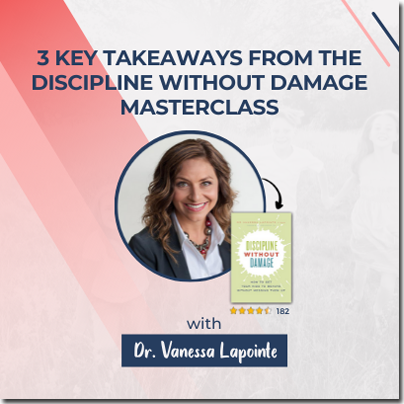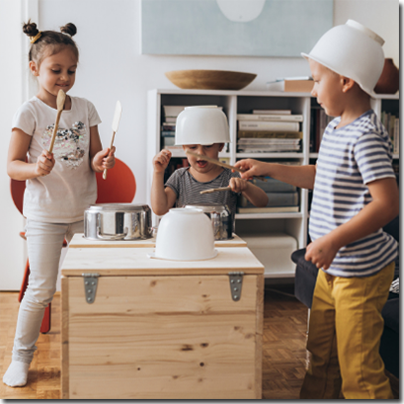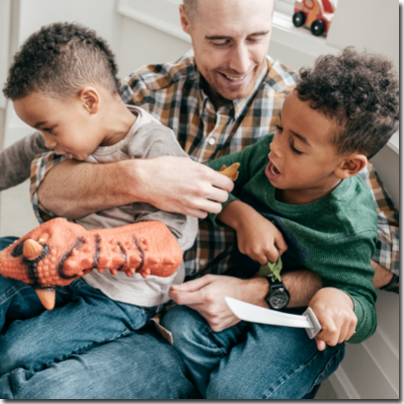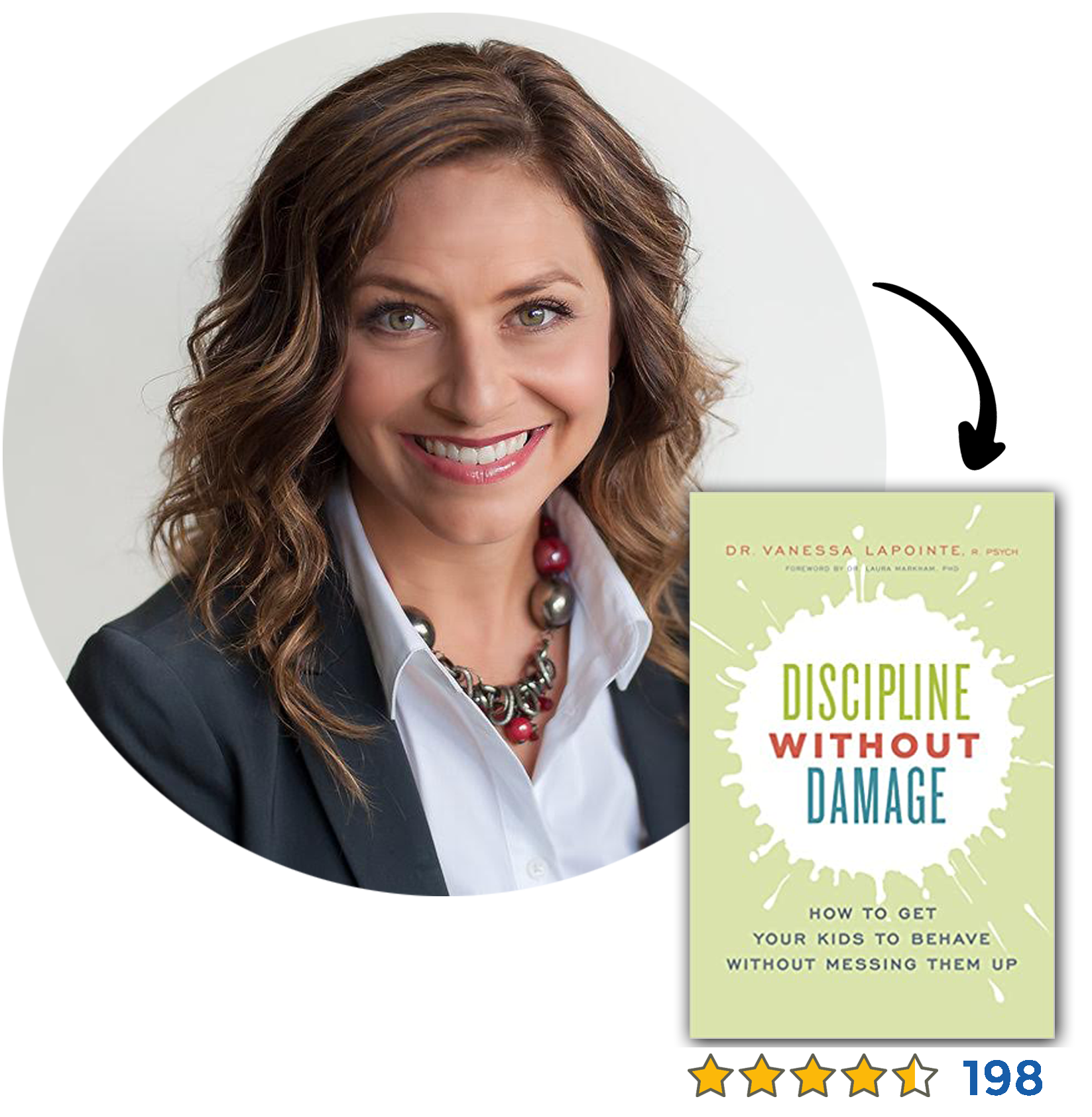 In just a few weeks we will have the opportunity to open ourselves up to a wealth of learning at the 2022 Positive Parenting Conference. If you are anything like me, you might try to build in a little extra time that week to be able to watch as many of the masterclasses as possible and let the ideas sink in. In preparation for the conference this year, we are giving you a little sneak peek at some of the masterclasses and some key learning moments to anticipate!
In just a few weeks we will have the opportunity to open ourselves up to a wealth of learning at the 2022 Positive Parenting Conference. If you are anything like me, you might try to build in a little extra time that week to be able to watch as many of the masterclasses as possible and let the ideas sink in. In preparation for the conference this year, we are giving you a little sneak peek at some of the masterclasses and some key learning moments to anticipate!
One expert, Dr. Vanessa Lapointe, gives us a heartfelt take on how we can show up for our kids in the ways that they need. In the Discipline Without Damage Masterclass, Dr. Lapointe gets beautifully personal in her examples of how important the work of knowing what our kids need is for our families.
Dr. Lapointe is a registered psychologist, parenting educator, best-selling author and international speaker. Having founded The Wishing Star Lapointe Developmental Clinic and also serving as its director, she has been supporting families and children for over 20 years. She is also–very importantly–a mom; her work comes straight from her heart.
I was the masterclass researcher for Discipline Without Damage: How to Get Your Kids to Behave Without Messing Them Up, which is the inspiration book for this masterclass. So, I got an early look at Dr. Lapointe’s masterclass interview with Lisa Hoashi from our AFineParent Team. I am excited to share my favorite takeaways with you today! Take a look below to see if this is a masterclass you want to add to your “Must-Watch” list so you can tailor your conference experience to your family’s needs!
#1: Focus on Your Behavior, Rather Than Your Child’s
 My first takeaway from Dr. Lapointe’s masterclass was the concept that we need to focus on our own behavior rather than the behavior of our child. She says, “Our job is not to find our children behaving well, but to find ourselves behaving well.”
My first takeaway from Dr. Lapointe’s masterclass was the concept that we need to focus on our own behavior rather than the behavior of our child. She says, “Our job is not to find our children behaving well, but to find ourselves behaving well.”
This idea immediately hit home for me. I find this both intimidating (it’s really us that have to figure it out!) and empowering (we can control ourselves, not our kids, so we can figure this out). Using this concept to self-reflect, I can recognize that I struggle when my two kids aren’t getting along. There is something about the high pitch of the screams and the aggressive nature with which they relate to each other in those moments that literally makes my heart race.
I can see that this is a parenting trigger of mine and that I have some work to do. Rationally, I know that it is important for my kids to stick up for themselves, work through conflict, and that I can help to guide them through that as long as I can stay calm. Dr. Lapointe’s message makes me feel empowered to do just that. I can control myself, and I can behave in a way that can help my children.
We all have moments when we are frustrated with the behavior of our children. And yet, those are the moments we need to look at ourselves. Dr. Lapointe says that in understanding the concept that behavior is communication, when our kids are doing something that frustrates us, they are really saying “Hey! I’m not okay over here. I need a little support.”
And so, if we want to be able to be the parent that our child needs, to behave in ways that support their behavior, we will need to look first at ourselves. Dr. Lapointe encourages us to “Do our own work and make sense of where we have come from. Grow ourselves so we can grow our children.” And we can do that work. The best way to begin that process is to begin to be conscious of our triggers. And then, to allow ourselves to feel the feelings behind our triggers. This part won’t be easy, but it is well worth it.
#2: Lean into Dependence
 My second takeaway from Dr. Lapointe’s masterclass was the idea of leaning into dependence to support the development of an authentically independent human.
My second takeaway from Dr. Lapointe’s masterclass was the idea of leaning into dependence to support the development of an authentically independent human.
I often find myself in my own head, wondering if what I am currently doing is best for my child. I’ve read a lot, I know a lot of information, but sometimes in the moment I really wish I had a parenting expert nested on my shoulder. I may think to myself, “If I put my six-year-old’s socks on, which I know she can do herself, am I giving into something or not empowering her to be independent?” Or “If I scoop up my two-year-old and carry him upstairs, even though I know he can walk up the stairs himself, will I stunt his growth as a capable human?”
Dr. Lapointe’s message of authentic independence resonated with me for these very moments. I felt empowered to allow my children to be dependent when they need or want to be, while also staying truly connected to them. In those moments of doubt, I can pretend Dr. Lapointe is there on my shoulder saying “Yes, you can put her socks on,” and “Yes, you can carry him upstairs.”
For all the parents out there who wonder how much dependence is okay and how you raise an authentically independent kid, Dr. Lapointe’s message is for you. Authentic independence is the kind that comes from the inside of kids because they feel deeply grounded in our love and care. They will do something because they desire to do it, not because they feel obligated or pressured to do it.
To demonstrate this idea, Dr. Lapointe shares the example of a child learning to walk. When we scoop up our child after they ask us to carry them, even though they can stand by themselves, we are showing them that we love them deeply and that we can give them what they need in that moment.
That held child, rather than one forced to stand on their own, will ultimately walk on their own because they desire to do so. They might not be the first child to walk; but when they do, it will be because they truly want to. That desire is authentic independence and this will serve all kids immensely throughout their lives.
With Dr. Lapointe perched on my shoulder (in my imagination), I’ve been able to bring this leaning into dependence on my own family. My six-year-old started kindergarten this year. The truth is, I didn’t know how it was going to go because we had had some major ups and downs in preschool.
To my excitement, my daughter is thriving at school. She is independent and capable whether she is doing math centers or collecting chicken eggs. At home, she needs some extra love and care. Some days I put on her socks. Some days I choose her outfit. Some days I mix up her fruit-on-the-bottom yogurt.
She leans into my care and I lean into her dependence and then she goes back to school and thrives as an independent being–because she knows she is loved and she desires to be independent.
Dr. Lapointe says “Dependence is everything. And yet a lot of the messaging in our popularized culture around child raising is to force the independence.” What if this week, when your child asks you to do something that you know they can do, you pause and tune into them. And then, you do it for them and smile lovingly as they lean into your care.
#3: Hulk it Up!
 Dr. Lapointe spends a good chunk of time in the masterclass explaining her “see it, feel it, be it” mantra. This mantra encourages parents to see our child’s behavior, try to feel what is behind the behavior, and then we be what they need us to be.
Dr. Lapointe spends a good chunk of time in the masterclass explaining her “see it, feel it, be it” mantra. This mantra encourages parents to see our child’s behavior, try to feel what is behind the behavior, and then we be what they need us to be.
If we keep in mind that “all behavior is communication,” we can usually better meet the needs behind the behavior. The part of this mantra that really stood out to me is the “be it” part. Dr. Lapointe explained how we can “be it” by thinking to ourselves, “I’m going to be your answer with the energy and swagger that allows [us] to do what is required.”
“Being it” for our child gives me the visual of a mama bear, making herself big to show up for what her cubs need. Hulking it Up is even more intentional than a mama bear, as we need to find the “confidence that is connected to your specific kid.” While I fully admit it can be hard in the moment to slow down, breathe, and try to feel what our child is feeling while they are throwing rice all over the kitchen (that happened this morning), it does ultimately give us more information and allow us to more effectively be what our child needs.
I had the chance to Hulk it Up for my kids recently when my six-year-old got locked in our bathroom. She was taking an evening poop before the kids took their shower and I had been playing rocket ship with my two-year-old. I went and knocked on the door, “Come in!” she said, and I turned the handle and pushed. Nothing. I turned the handle harder, knowing that sometimes the door got a little jammed. It didn’t budge.
My heartbeat quickened and my mind began to race. My six-year-old can get very dysregulated and is also very sensitive. I had no idea how I was going to open this door. And it was bedtime. And then I remembered Dr. Lapointe perched on my shoulder, and I knew I had to Hulk it Up.
I took three deep breaths. “Hey love, the door is jammed. I am going to play with it to figure out how to open it.” “Okay” she chimed back, seemingly unphased. I tried playing with the lock from the outside, I tried moving the handle in a bunch of different ways. I got a screwdriver and took off the handle and played with that. Nothing.
Now she was at the door and I could tell was a little nervous. I spoke to her gently, “You are safe love. I am not sure yet how we are going to open the door, and I promise that I will figure it out. Even if I have to chop down the door, I’ll get you out.” She giggled at that. She loves her hatchet, so I knew she would like that idea.
Ultimately, we figured out how to pry the door open. And everyone was safe and got to bed almost on time. The beauty of Hulking it Up is that everyone felt safe and knew we would be okay (even though, admittedly, I actually didn’t know how…the hatchet idea kept growing on me too.) And while it was exciting and I am sure both kids will need to process it for a while, we all stayed calm and got her out safely, with everyone feeling okay.
There will be times, both big and small, when our kids need us to Hulk It Up. The best way to start this practice at home is to begin to see the feelings and needs behind your child’s behaviors. (Remember the “See it, Feel it, Be it” mantra.) Tune into what your child needs and the chances are that when you really feel it, you will know what they need and will be so connected that you just have to do it.
I felt empowered by Dr. Lapointe’s ideas, and I think you will too! We can focus on our own behavior to help support ourselves, and our kids. We can lean into dependence and know that we are making our kids feel safe enough to go out on their own. And we can “Hulk it Up” when we need to, because we know how we need to show up for them.
This is just a small sampling of the many heartfelt and helpful ideas from Dr. Lapointe. I hope you’ll watch Dr. Lapointe’s Discipline Without Damage Masterclass during the Positive Parenting Conference. She will make these ideas come to life in a way that will inspire you.
 You can watch the full Discipline Without Damage Masterclass with Dr. Vanessa Lapointe for FREE during the online Positive Parenting Conference between May 17th – 24th, 2022. Each year 100,000+ parents join us for this amazing online event. Don’t miss it!
You can watch the full Discipline Without Damage Masterclass with Dr. Vanessa Lapointe for FREE during the online Positive Parenting Conference between May 17th – 24th, 2022. Each year 100,000+ parents join us for this amazing online event. Don’t miss it!
Up Next…
Do your kids love going to summer camp? Do you love all the great skills they come home with after camp?
Join us next week as we explore how parents can translate the approaches used in summer camp to the home, year-round, when we discuss key takeaways from the Camp-Inspired Parenting Masterclass with Audrey Monke.
This fun masterclass is packed with insights about the importance of kindness and grit and how to use connection, structure, and rituals to enhance independence. See you next week!
Hi Kelsey! I stumbled across this article and wow, so well written, thank you for posting it for all to read. It really is great to have the 3 key takeaways and reminders. If only all parents read articles like this, daily, as part of their discipline and routine. People will spend oodles of time and money to research the best job, house, t.v., vacation, yet so many people have done zero reading / research for the best most important part of their lives: their child/children! Your situation with a super-calm demeanour when the bathroom door was locked will pop into my head now when I’m in an agitated state ….. because I want to be the best calm role model for my daughter and allow HER to feel safe in my presence, and not feel stress. Sincerely, Patricia in Ontario, Canada
Thank you for reminding me that I need to focus on my own behavior as a parent in order to be what our child needs in the moment. We live in a world that does not always support taking time to be intentional. You have reminded me how important it is to take that time, in the moment, and model for our children that they, too, can step back from their emotions. That’s how they learn – from us.
Thanks for your article!
I really loved the line: “She leans into my care and I lean into her dependence and then she goes back to school and thrives as an independent being–because she knows she is loved and she desires to be independent. ”
Thank you for this great article!
Thanks for the lovely note, Mike. I’m so glad that is connected with you 😊